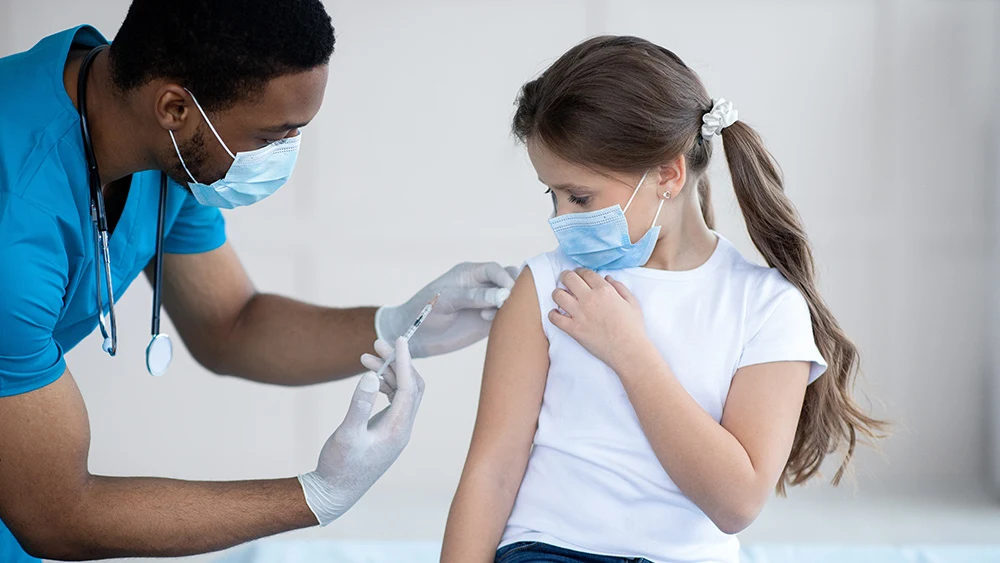(Planet Today) In the weeks following the rollout of the Wuhan coronavirus (COVID-19) vaccines for children between the ages of 12 and 15 in the United Kingdom, the number of recorded deaths due to the disease among children in the same age group surged.
(Article by Arsenio Toledo republished from NaturalNews.com)
This is according to data from the U.K.’s Office for National Statistics (ONS). The office releases weekly data showing the average deaths by sex and age group.
From 2015 to 2019, among children ages 10 to 14, there was an average of 41 deaths between week 38 (late September) to week 45 (early November). (Related: Children are dying at a rate 62% higher than the 5-year-average since they began to be given the COVID-19 vaccine.)
Within the same period, the weekly figures for 2021 show that 59 children have died. This represents a 43.9 percent rise in deaths over the five-year average.
Even mainstream media outlets in the U.K. have pointed out that deaths among children aged 10 to 14 have been consistently above that of the national five-year average.
It all started when the country approved administering the experimental and deadly COVID-19 vaccines to that age group.
The single largest weekly death count was observed on week 40, which is two weeks after the children started receiving the vaccines. Eleven children died that week. The five-year average was four. That represents a 175 percent rise in deaths.
On the five-year average scale, 24 boys and 17 girls between the ages of 10 to 14 died from week 38 to 45. During the same period in 2021, 34 boys and 25 girls in the same age range died. That represents a 42 percent rise in the deaths of boys and a 47 percent rise in the deaths of girls.
The deadliest week recorded for both genders was in week 40, when seven boys and four girls died, representing a 250 and 100 percent rise from the five-year average.
David McLoone, writing for Life Site News, pointed out that while the numbers might seem low, the important information to focus on is the sudden surge in deaths compared to the five-year average.
“For the 16 weeks before the COVID jab rollout, for example, an increase in deaths of only around 3.9 percent is observed, a factor of 10 less than the weeks thereafter,” wrote McLoone. “Though there is a pattern of increased deaths since the shots began being used in children, the cause of deaths were not published.”
COVID-19 case rates in England the highest among children aged 5 to 9
The number of children being reported to have COVID-19 is surging in England. COVID-19 case rates in the country are now highest in schoolchildren aged five to nine. Before they became the leading age group, secondary school-aged children had the most COVID-19 cases in England.
This information is taken from the U.K. Health Security Agency (UKHSA). The agency’s latest report shows that among children aged five to nine, there are 723 COVID-19 cases per 100,000. The previous week, there were 484.5 cases per 100,000 children.
For children and teenagers aged 10 to 19, there were 694.2 cases per 100,000 people, up week-on-week from 571.7 cases per 100,000.
So-called health experts in the U.K. claim the only solution for the surge in cases and deaths among younger age groups is to keep pushing for vaccinations.
“More people than ever are eligible for second and booster doses – and it is as important as ever to get vaccinated or receive a booster jab as soon as you are offered one,” said Steven Riley, head of the UKHSA’s Data, Analytics and Surveillance group.
But McLoone believes the push to vaccinate more and more children is leading to more cases and deaths.
“The push to vaccinate young children comes despite the fact that children face extremely low risk from COVID-19,” wrote McLoone. “This combined with the thousands of reports of serious adverse events and deaths after the jabs has led to numerous experts to criticize the push to inject children with the experimental shots.”
Learn more about how governments are putting the health of children at risk by reading the latest articles at Vaccines.news.
